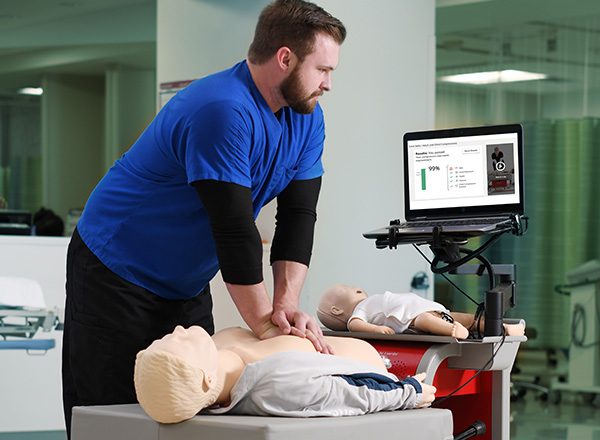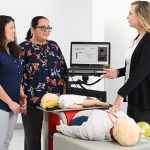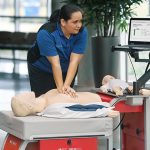Practice like you play is an oft-repeated phrase that coaches of many sports advise their athletes. Being prepared and practicing frequently for any event, from athletics to business to healthcare, will enable you to perform your best when the pressure is on.
For over 50 years, the American Heart Association has been the catalyst for improving heart health and reducing deaths from heart conditions and diseases, continuously innovating in pursuit of the advancement of medical science and transference of acquired knowledge to accelerate lifesaving. Learn more about innovations from the American Heart Association that lead to improved resuscitation care.
Because of this demonstrated leadership in evidence-based medical and educational science, healthcare providers rely on the American Health Association Guidelines as the basis for clinical decision making for stroke, heart failure, resuscitation, atrial fibrillation, and coronary artery disease. No other organization is more knowledgeable or prepared to advise clinicians on cardiovascular conditions or the broad scope of resuscitation etiology or treatment.
But guidelines alone aren’t enough to keep healthcare providers competent in complex procedures like resuscitation. The science is clear: resuscitation skills degrade over three to six months, making it critically important to regularly refresh resuscitation psychomotor skills—practice is required to achieve the competence and confidence needed for the best possible patient care.
Healthcare institutions already rely on the American Heart Association as their main resource for heart guidelines-directed care—why look anywhere else for resuscitation training and quality improvement? Your staff should practice their skills using proven American Heart Association quality improvement solutions to ensure your healthcare providers are ready to provide the best possible patient care every day. The American Heart Association and Laerdal Medical formed a strategic alliance to leverage their unique strengths to co-create innovative solutions to help save more lives from cardiac arrest. Over the ensuing years, the American Heart Association and Laerdal have used their recognized leadership in resuscitation science, education and technology to develop multiple solutions that have helped train more than 15 million people to act during a cardiac arrest.
Programs delivered from RQI Partners, including RQI® 2020 and HeartCode®, prepare healthcare providers to master competence in high-quality CPR. There is no equal substitution for the proven quality of these American Heart Association programs or their efficacy in preparing the responder to save a life in an emergency.
If you want to hit a home run in the big game, you have to practice. If you want to save the life of a patient in cardiac arrest, you must provide and perform high-quality CPR. It is essential to practice how you perform, with the definitive leaders in resuscitation science and technology – you owe it to your staff and your patients.
Please join my webinar on Tuesday, August 13: Resuscitation Competence: An Algorithm for Saving Lives.









